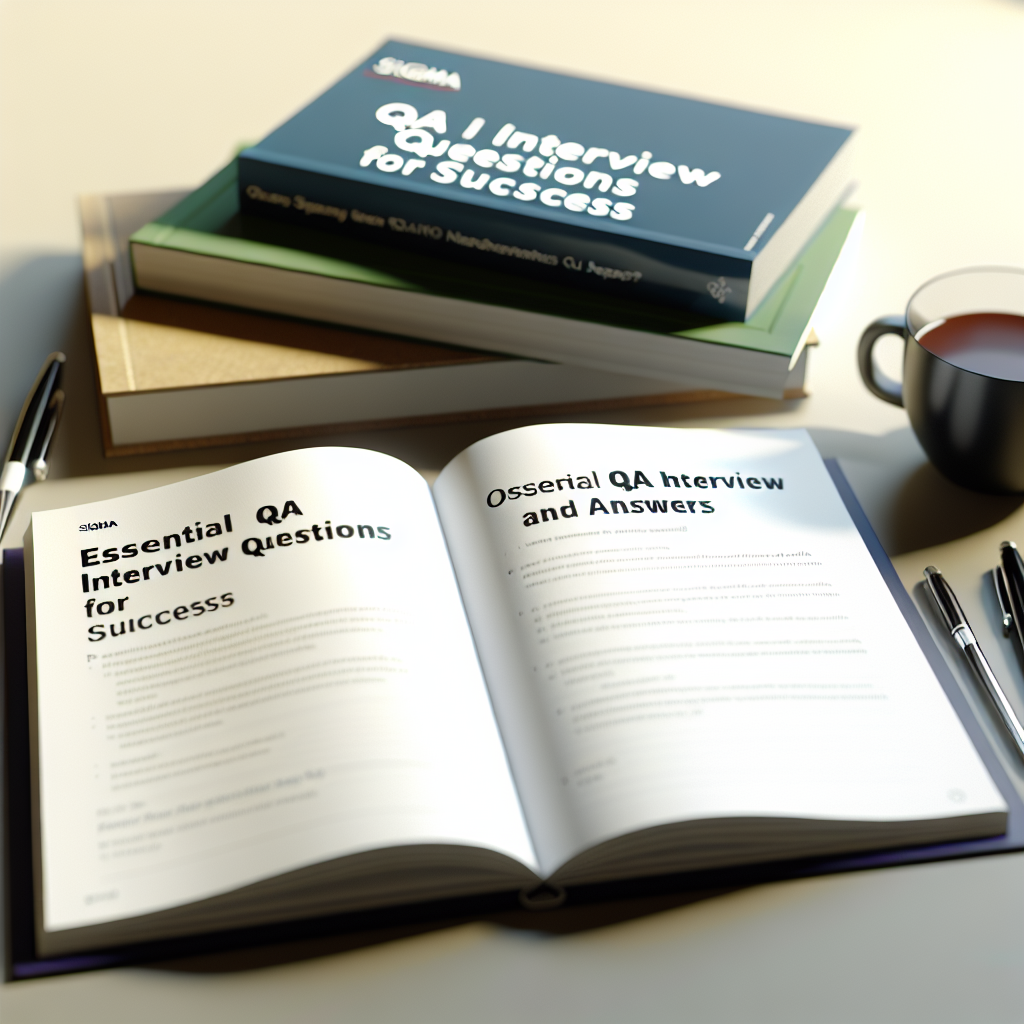Preparing for a quality assurance (QA) interview can be challenging, especially with the variety of questions that assess both technical knowledge and problem-solving abilities. In this article, we will explore essential QA interview questions and provide comprehensive answers to help you succeed in your next interview. Understanding these common questions can boost your confidence and highlight your expertise in quality assurance.
Key Questions on QA Methodologies and Technical Skills
During a QA interview, candidates are often questioned about their understanding of testing methodologies, tools, and the testing process itself. A solid grasp of *manual and automated testing* techniques is crucial, along with familiarity with *test planning, execution, and defect tracking*. Expect questions such as:
- What is the difference between manual and automation testing?
- Explain the software development life cycle (SDLC) and the role of QA in each phase.
- How do you prioritize test cases when faced with tight deadlines?
- What testing tools are you experienced with, and how do they improve QA efficiency?
Answering these questions effectively requires demonstrating your technical expertise and your ability to adapt testing strategies to project needs. For example, when discussing automation tools, mention specific platforms like Selenium, JIRA, or TestComplete, and describe how they streamline testing processes, reduce manual effort, and increase coverage.
Handling Behavioral and Problem-Solving Questions
Beyond technical questions, interviewers assess your soft skills and problem-solving capacity through behavioral questions. These evaluate how you handle challenges, work within teams, and maintain quality standards under pressure. Typical questions include:
- Describe a time when you identified a critical bug late in the release cycle. How did you handle it?
- How do you communicate defects to developers effectively?
- Have you ever disagreed with a developer about a bug’s severity? How was it resolved?
- How do you stay updated with the latest QA trends and tools?
Effective responses should showcase your problem-solving skills, communication abilities, and commitment to quality. For instance, when discussing a critical bug, emphasize your methodical approach, collaboration with developers, and focus on the impact on product quality and release timelines. Such insights demonstrate your maturity and professionalism in QA roles.
Conclusion
In summary, excelling in a QA interview requires both technical knowledge of testing methodologies and strong soft skills for effective communication and problem-solving. Preparation should focus on common questions related to testing tools, processes, and real-world scenarios. Mastery of these topics will significantly increase your chances of landing your desired QA position and advancing your career in quality assurance.
